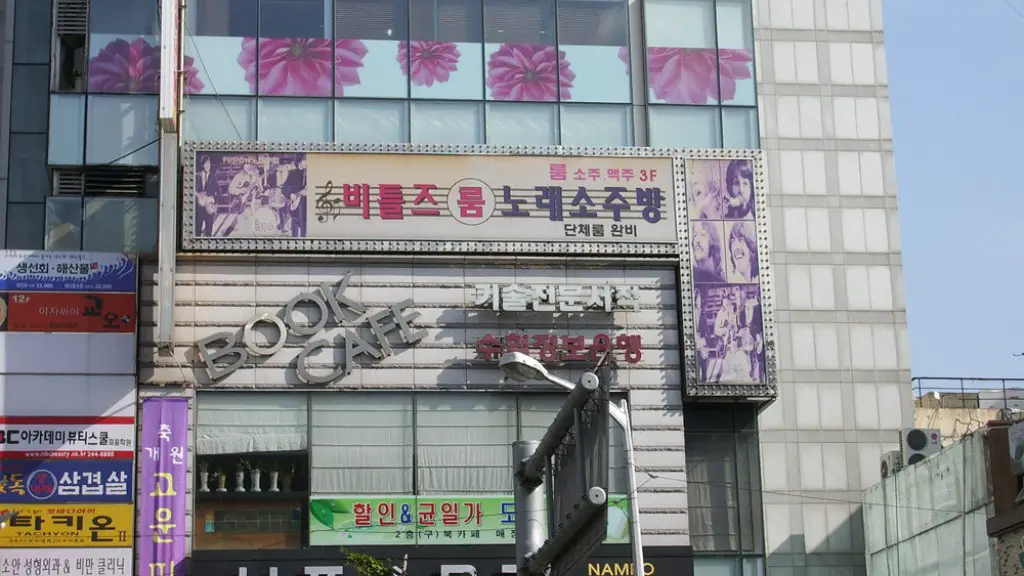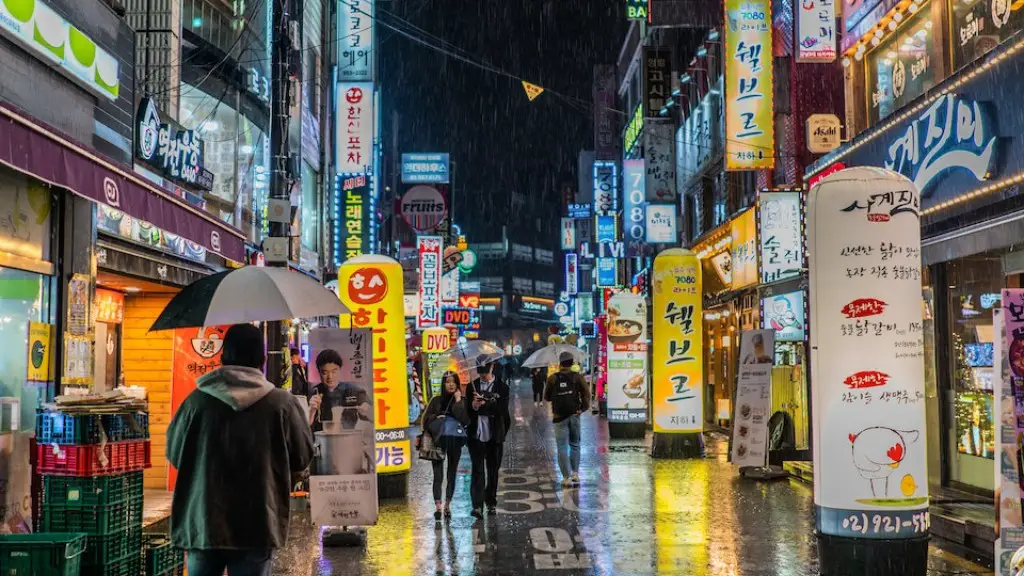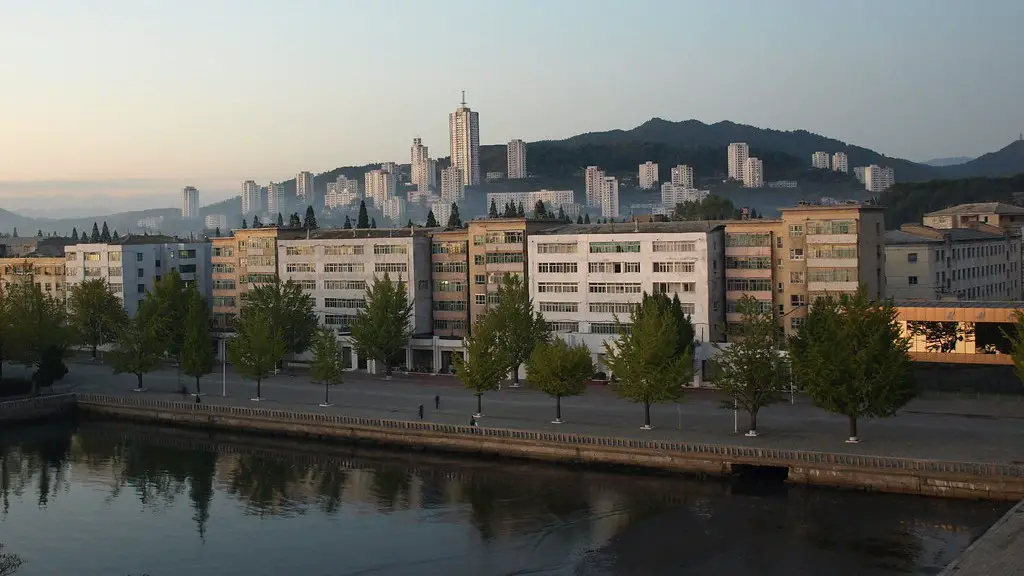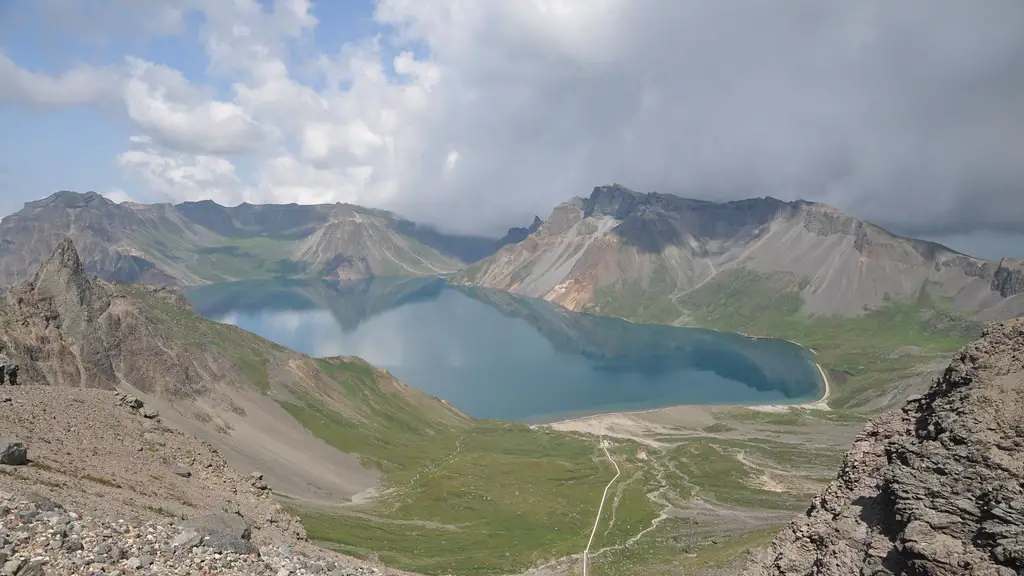North Korea is one of the most repressive regimes on the face of the planet. It is the only nation in the world that recognizes itself as an absolute dictatorship. As a result, escaping North Korea has become increasingly difficult for those living within its borders. This article aims to explore why it is so hard to escape from North Korea and the steps people have taken in order to do so.
The North Korean government is infamous for its authoritarian rule and extensive use of surveillance. People are constantly monitored by cameras, spies and their own relatives, making it incredibly difficult to go anywhere without the permission of the government. This makes escaping the country nearly impossible. At the same time, leaving North Korea means escaping both the government and the Korean People’s Army, both of which operate with stunning efficiency. The combination of intense surveillance and military deterrence have created a situation where escape is a daunting prospect.
As if the surveillance weren’t restrictive enough, border guards are extremely vigilant, trained to look for anyone trying to escape. A former guard reveals that they are taught to “look for signs of fear; anyone trying to cross without permission would be put in jail.” This makes it near-impossible for anyone to cross the border without being detected. To make matters worse, the government has a very strict policy regarding escape attempts. Those who successfully escape are considered ‘traitors’, and their family members may be sent to prison or worse.
In addition to the physical barriers, those attempting to escape North Korea face psychological hurdles. Those who have grown up within the country’s oppressive borders often lack the confidence and knowledge to even attempt to leave. One former North Korean resident shares that “people are scared, but also don’t know what to do”. The combination of fear and ignorance has meant that many are afraid to even consider attempting an escape.
Despite the seemingly insurmountable obstacles standing in the way, those who manage to escape North Korea often cite ingenious methods and miraculous luck. Many manage to flee the country by bribing officials, or by crossing the Chinese border on foot. Those with closer ties to the government may have access to private planes and private drivers. For the most part however, those who succeed do so due to a combination of determination and stealth.
The stories of those who have managed to escape North Korea are nothing short of heroic. However, escaping the country is an incredibly dangerous pursuit, and often comes at a great cost. Those attempting to cross the border risk imprisonment, torture and even death. As long as the North Korean government remains in place, leaving the country is likely to remain an incredibly difficult, if not impossible, task.
The Journey
Escaping North Korea is a long and arduous journey. It requires a combination of courage and a flawless execution of a carefully planned route to have a chance of succeeding. For those who bravely attempt the journey, it often begins with a slow, quiet trek through the North Korean countryside. The route passes beneath a web of surveillance, watched through binoculars and cameras by the keen eyes of the security forces. Yet, countless brave individuals still choose to stay the course, inching their way closer and closer to freedom.
The journey is incomplete without traversing the Tumen or Yalu Rivers, the two primary borders with China. For those who choose to take this path, the journey is often fraught with danger. The rivers are tightly guarded, with heavily armed North Korean soldiers patrolling the area. Those who are unsuccessful in crossing face severe repercussions; often times to include torture, imprisonment, or death. For those who make it across, another hurdle stands in the way of freedom. The arduous task of making it through China can mean years on the run from forces of the North Korean regime, desperately trying to make it to a safe haven.
Life In China
For those who manage to make it across the border, life in China offers a much-needed reprieve from the oppressive regime of North Korea. While harsh laws still remain in place to seek out and repatriate illegal North Korean immigrants, much of life in China can be enjoyed with relative freedom. However, life in China remains a precarious one. Those who are found often face immediate deportation, be it voluntary or otherwise. This means those hoping to make it to the outside world often remain living in the shadows, avoiding detection and deportation.
The situation is even more dire for North Korean women, who make up the majority of refugees. Women often find themselves bought and sold at markets in North Korea, escalating the dangers of escaping significantly. Many find themselves running from traffickers, facing a harsh reality as they attempt to make it to the outside world. With Chinese authorities often unable to differentiate between victims and perpetrators, these women often find themselves stuck in a desperately dangerous limbo.
The Price of Freedom
The consequences for those caught escaping North Korea is often severe, for those caught are said to suffer severe repercussions. Reports speak of cruel and usually arbitrary punishments, with those caught sent to labour camps that have been likened to prison camps from the Second World War. Countless stories also exist of those who have been subjected to torture, with reports of imprisonment, forced labour, and starvation.
For those who do make it out, the journey is not over. For many, the psychological burden of living in a repressive regime can still remain. Stories of depression, anxiety and post-traumatic stress disorder abound, with many having to relearn how to live in a free society. Escaping North Korea is a harrowing ordeal, with a severe toll on the mental and physical well being of those involved.
The Legacy of Escape
Despite the difficulties faced in escaping North Korea, those who do succeed often go on to inspire others. People like Ji Seong-ho, a defector who famously waved his crutches during the 2018 Olympics, or Park Yeon-mi, who became one of the world’s loudest voices for refugees, are now renowned leaders in their cause. The courage and resilience of those who have escaped has brought awareness and support to the plight of North Koreans, fueling a long overdue discussion on the brutal realities of life in the Hermit Kingdom.
Those who have already escaped the painful conditions of North Korea still can’t rest easy. Their friends and family still trapped back home remain at risk, with stories of disappearances and kidnappings all too common. The motive of those assisting people to escape often comes from a deep-seated compassion for the suffering of North Koreans; a plight anyone can sympathize with.
Living In The West
For those living in the free world, the reality of life as a North Korean refugee often requires heavy adaptation. Starting over in an entirely new environment puts immense psychological; and financial strain on those involved. Even the language barrier can be a major hurdle, and those hoping to take their chance must face the prospect of finding a way to integrate into the Western world and begin anew.
As a society, the West has a moral obligation to aid those who make it past the many barriers they must face. Numerous organizations exist, such as Free North Korea Radio, to provide assistance to those who manage to make it out. Such groups offer vital support to those hoping to re-establish their lives, whether it be financial assistance, language classes, education or accommodation.
The journey for a North Korean refugee does not end once they have escaped their oppressive homeland. Much like those fleeing a war-torn nation, North Koreans are often in desperate need of support and aid to make the transition to life abroad.
The International Response
The journey out of North Korea turns many into refugees, yet the global response to their plight remains inadequate. UNHCR’s Refugee Status Determination Handbook does not apply to North Koreans, and there is no legal basis for their mobility. This leaves North Koreans disproportionately exposed and unprotected.
The repressiveness of the government in North Korea has also made it difficult to find ways to help those who are trying to escape. International aid and governments need to collaborate if they want to make the journey any softer for those who brave it, and if they are going to put an end to the human rights abuses taking place in the country.
There are countless stories of incredible courage and resilience in the tale of North Korean refugees. Yet every day, many still attempt to make the perilous journey, risking imprisonment, torture and worse. For as long as the oppressive North Korean government remains in place, escaping will remain all but impossible for many.





